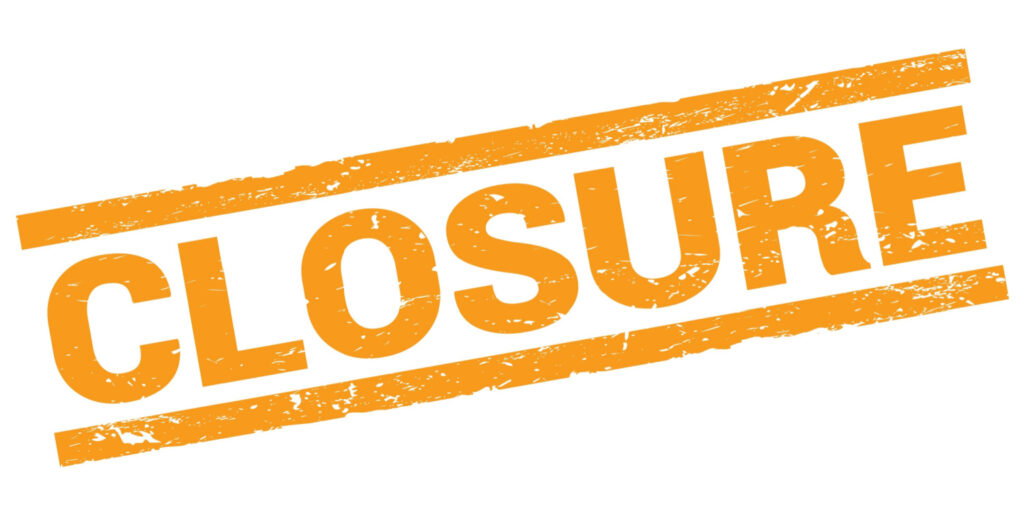Have you received a letter from Companies House notifying you that your company is going to be struck from the register? In this post, we look at what a compulsory strike off is, why it occurs, and how to stop it. Let’s get started.
What is a compulsory strike off?
A compulsory strike off is a type of company dissolution (closure of a company) whereby a company is forcibly closed by Companies House.
Ultimately, this means that you will no longer be able to trade under the limited company structure.
Why does a compulsory strike off happen?
Companies House will start the process of striking off a company if they believe that a company is ‘no longer carrying on business or in operation’. This can be triggered by any of the below:
- Company documents such as annual accounts or the confirmation statement are overdue and Companies House have not had a response to notification letters (they send two) regarding this
- The letters mentioned above are returned unopened to Companies House (these will generally be delivered to the company’s registered office or director’s correspondence address)
- There are no directors appointed in the company (a private company limited by shares must always have at least one person appointed as a director)
How to stop a compulsory strike off
The good news is if you do wish to keep your company, discontinuing a compulsory strike off is relatively easy. Here’s how.
1. Respond
First and foremost, you need to respond to the letter(s) that Companies House sent, notifying them that the company is still operational. As well as arranging a written, mailed response, you should also contact them via telephone or email.
2. Fix the issue(s)
Secondly, you must deal with the problem that has brought this about. This is most likely to be overdue annual accounts and/or an overdue confirmation statement.
3. If the annual accounts are overdue
Prepare and file them. In this instance, you will need to pay a late filing penalty – the total of which depends on how late you are. The maximum penalty fee is £1,500 (doubled if you are late in delivering accounts twice in a row).
It’s important to know that the fee only applies when the accounts are delivered. If you would rather have the company closed than file the accounts and pay the fee, you can let the compulsory strike off process run.
4. If the confirmation statement is overdue
Prepare and file it. There is no penalty fee associated with late filing of the confirmation statement.
How quickly will Companies House start the process if a company falls foul?
The exact timeframe can differ but it typically depends on why the company is being struck off.
The company hasn’t filed annual accounts
There is no set maximum period for how late Companies House will allow annual accounts to be.
The window for late filing penalties goes up to ‘More than 6 months’ but Companies House has been known to start the process before accounts are this late.
The company hasn’t filed a confirmation statement
Companies House state that the confirmation statement must be delivered within 14 days of the end of a company’s review period.
Once this period has passed ‘Your company and its officers may be prosecuted. Your company may also be struck from the register.’
So in theory, Companies House could send the first compulsory strike off letter 15 days after the review period has passed.
The company doesn’t have any directors in place
As soon as a company goes down to having zero directors appointed, it is considered in default and so the compulsory strike off notification letter could be sent out immediately.
Realistically, in this instance, it may take a matter of months for Companies House to act.
What are the implications of a compulsory strike off?
As mentioned, a company that has been closed via a compulsory strike off can no longer trade as a limited company. On top of this:
- The company’s bank account will be frozen and any assets will become the property of the Crown
- The actions of the company directors that led to the strike off could be investigated
- Employees of the company will be made redundant
- The reputation of everyone involved in the company will be tarnished, potentially leading to the loss of future business
What is a first gazette notice for compulsory strike off?
The Gazette ‘publishes online profiles of every UK business registered with Companies House’. It is a legal requirement for all insolvency proceedings to be published in The Gazette.
If you do not respond to the second letter that Companies House issued (about their intent to strike off your company) within 14 days, they will publish their first gazette notice. This makes their intent public knowledge.
A company and its officers have 2 months from the first gazette notice to save the company. If no action is taken within these 2 months, another notice will be published in The Gazette stating that the company has been struck from the register. The company will then be considered dissolved.
What is a voluntary strike off?
This is when the company officer(s) decides that a company is no longer required and so closes it of their own accord. The decision is very much their own, hence the word ‘voluntary’.
An involuntary strike off can cause reputational harm to everyone involved in the company. So, a voluntary strike off should always be preferable. So much so that it’s conceivable for a company to successfully contest an involuntary strike off and then voluntarily strike off the company.
What is a company liquidation?
Liquidation should not be confused with striking off. Liquidation is when a company is being closed down, but it has assets and liabilities that need to be dealt with.
Once debts are paid, any leftover money is given to the company’s shareholders. Liquidations can be voluntary or involuntary and are typically handled by liquidators.
See here for the gov.uk guidance on how to liquidate your company.
Why the term ‘strike off’ is misleading
Once a company has gone through a striking off, it is not actually removed from the Companies House register.
Instead, it will remain there indefinitely, with its company status showing as ‘Dissolved’ instead of ‘Active’ (while the process is ongoing, its status on the register will show as ‘Active – Proposal to Strike Off’).
This is important as, if a company is forcibly closed, this fact will be on the public register.
Here’s how we can help you
We offer a number of services that can help your company avert a compulsory strike off:
Dormant Company Accounts Service
If your company has never traded or not traded in its most recent financial year, you can file an abridged set of annual accounts known as dormant company accounts.
With our Dormant Company Accounts Service, our company experts will prepare and file your company’s dormant accounts, ticking this accounting task off your to-do list, and saving a lot of money in accountancy fees.
Confirmation Statement Service
Like annual accounts, all companies need to file a confirmation statement, regardless of if they’re trading or not.
Let our experts take care of this filing obligation for you, allowing you to concentrate on running your business.
Company Dissolution Service
Letting Companies House follow through with a compulsory strike off is bad for the reputation of everyone involved in a company.
If you don’t need your company anymore, allow our dedicated team to take care of closing it the right way.
So there you have it
You should now know what a compulsory strike off is and what to do if Companies House starts the process against your company.
We hope you have found this post helpful. Please leave a comment if you have any questions and we’ll be happy to help.
Please note that the information provided in this article is for general informational purposes only and does not constitute legal, tax, or professional advice. While our aim is that the content is accurate and up to date, it should not be relied upon as a substitute for tailored advice from qualified professionals. We strongly recommend that you seek independent legal and tax advice specific to your circumstances before acting on any information contained in this article. We accept no responsibility or liability for any loss or damage that may result from your reliance on the information provided in this article. Use of the information contained in this article is entirely at your own risk.






Join The Discussion